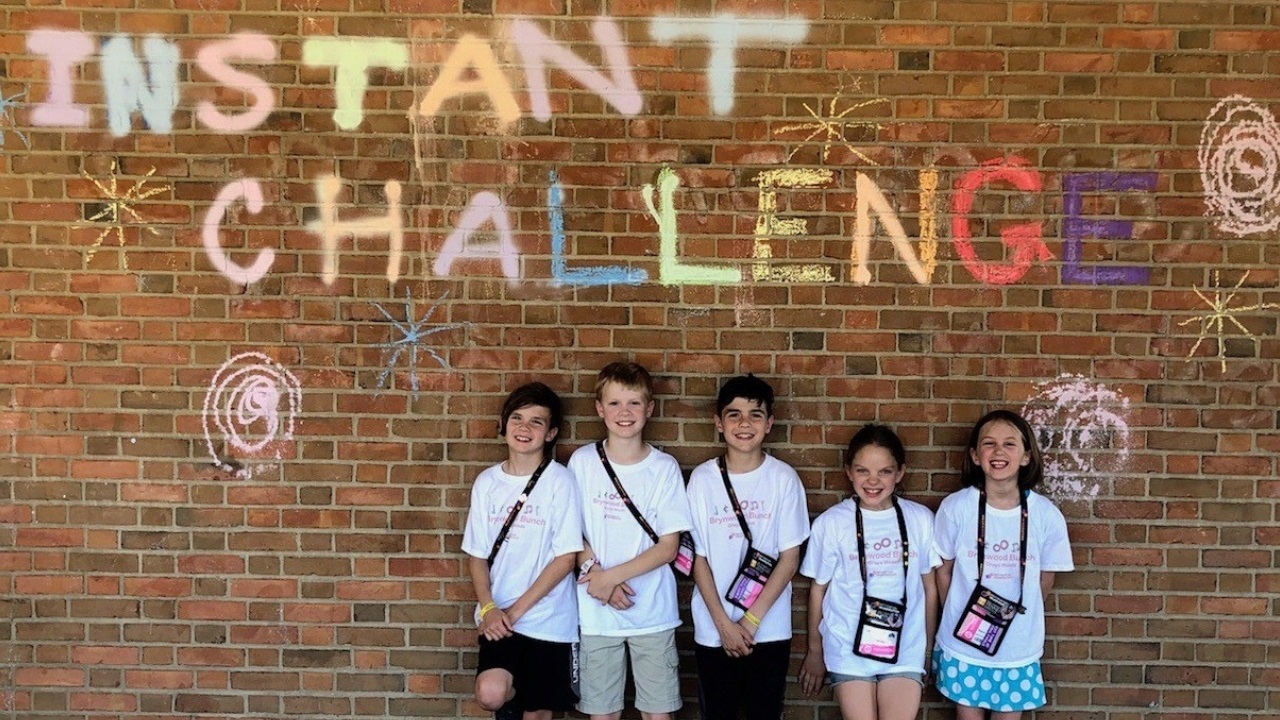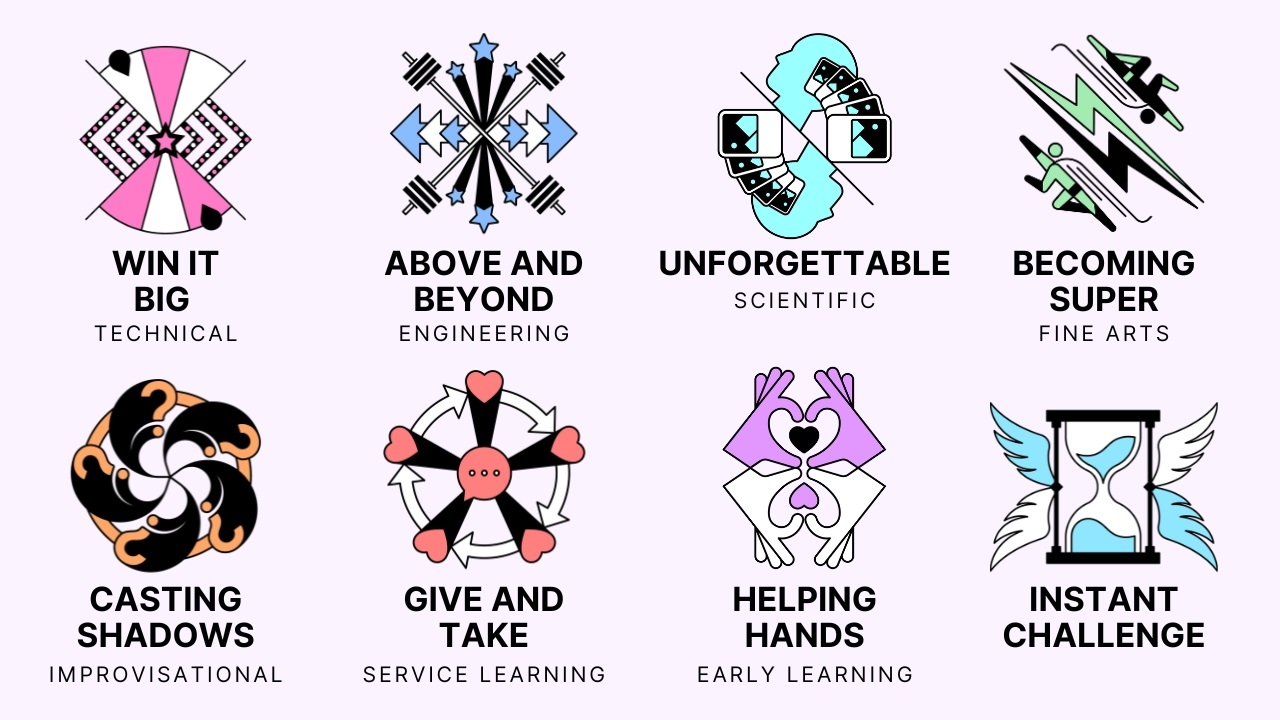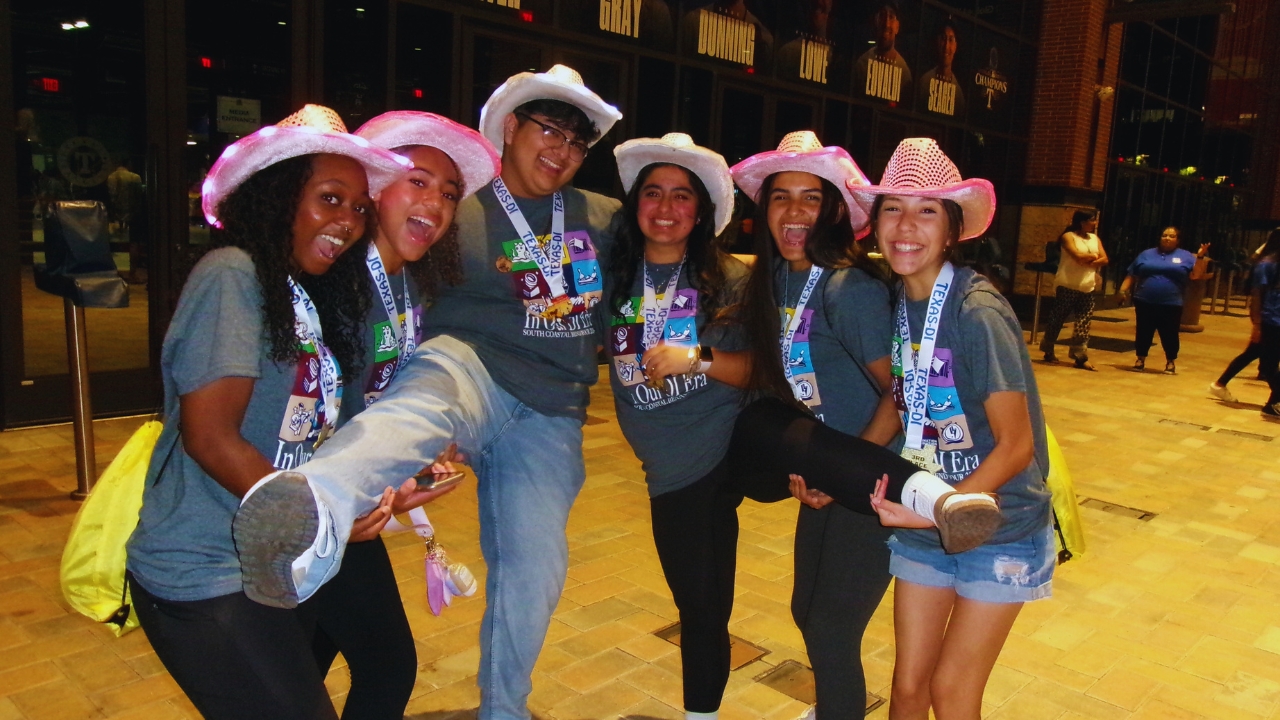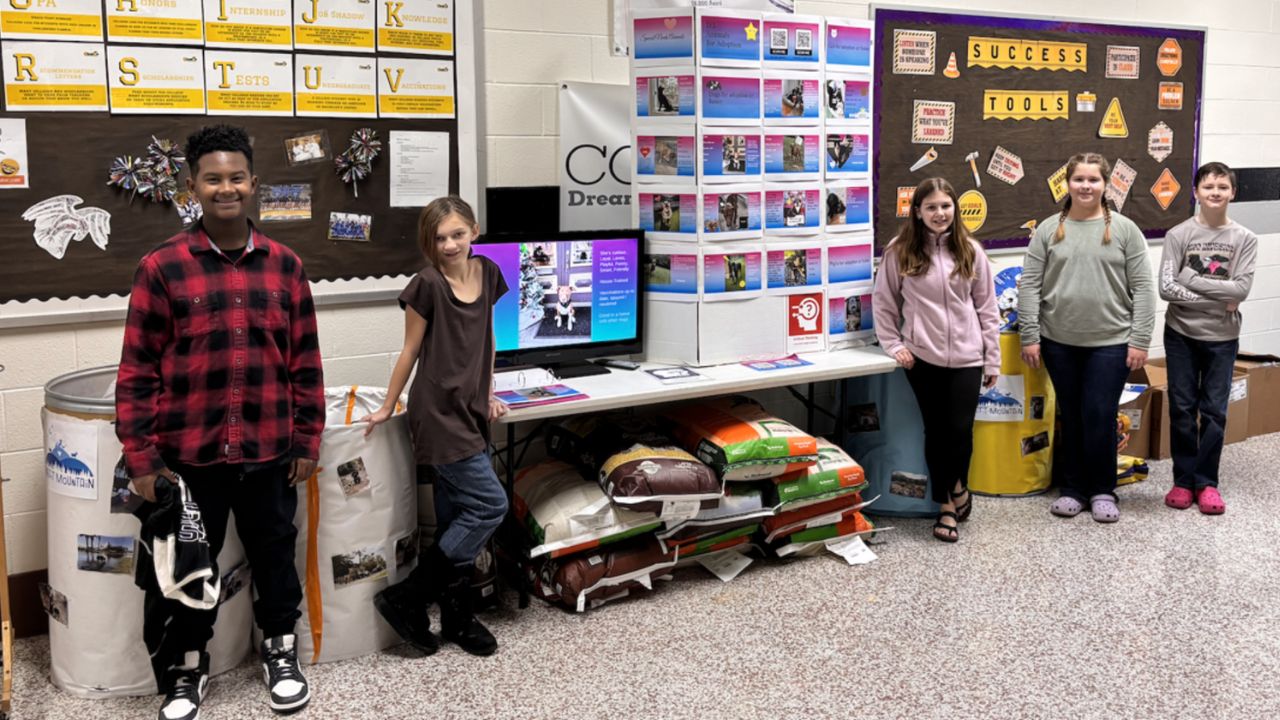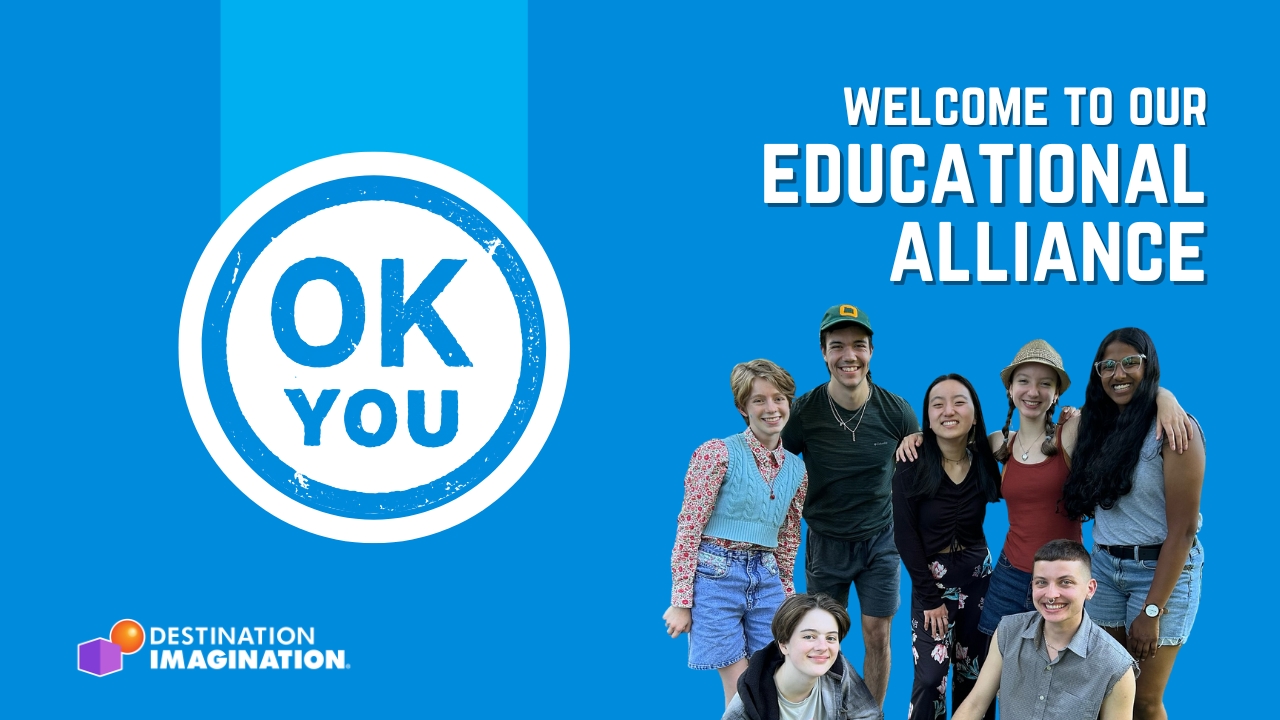By: Terry Branstetter
I love when kids brainstorm. They really get it—not the least bit constrained by physics, costs, time, skills, or any well-established laws of nature—exactly as it should be.
Your team’s ability to bring some of their awesome ideas into reality very much depends on their individual skills. Can the Team Manager help students expand their skill sets? Absolutely! 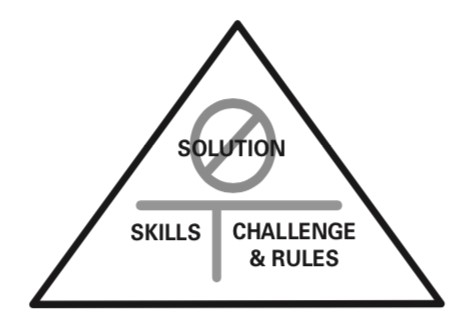 Acquiring and applying new skills are foundational to Destination Imagination. The Rules of the Road Interference Triangle addresses this squarely, “It is the job of the Team Manager to facilitate the team members’ acquisition of skills.”
Acquiring and applying new skills are foundational to Destination Imagination. The Rules of the Road Interference Triangle addresses this squarely, “It is the job of the Team Manager to facilitate the team members’ acquisition of skills.”
The following framework describes when, what and how you might introduce new skills to students.
WHEN: There are three opportune times to expand team skills.
- Before they are needed: these opportunities can be preplanned into team meetings with no particular purpose except to teach new skills (with the side benefit of excellent team building).
- When ideas are flowing: sometimes the team needs to research or validate whether or not a particular idea is viable, and new skills can be introduced and tested as a proof of concept.
- Just in time: with a design in focus, this opportunity often helps the team become more efficient or to build upon their design to incorporate more advanced and complex elements.
Another way of thinking about these opportunities is via the Destination Imagination creative process stages.
WHAT: No two teams are alike when it comes to their existing and potential skill sets, yet their reasons to acquire new skills can be categorized into three purposes.
- Foundational: Not every skill needs to have a predetermined purpose. Sometimes students simply want to learn how to do something new. Other times, the Team Manager can coordinate opportunities to teach new skills simply to build student knowledge and confidence.
- Targeted: Some skills are required to effectively transform a team’s design into a solution. Often times these build upon existing skills to advance the team into improved production and quality. Examples include progressing from hand tools to portable power tools to benchtop tools.
- Stretch: Sometimes it’s possible to introduce disruptive skills that have the potential to radically change or advance a solution. These could include motorization, programming, and elaborate presentation skills. Introducing and leveraging these types of skills takes time. I’ve seen it effectively done as teams move to advance in competition—skills and solutions at the Regional Tournament look nothing like those at Global Finals. Sometimes it makes sense to carry over these stretch skill ideas into the next season when there is more time to make them foundational.
HOW: The best Team Managers I’ve observed are masters of asking the right questions. Preparation is key, and the following items can help.
- Take inventory: What skills and resources are readily available within your team, the Team Managers, family members and others? Parents and sponsor organizations can provide a wealth of experience and support. Who knows how to code? Who has a well-stocked workshop?
- Empower the leader: Often a student will step forward to learn or demonstrate an existing skill. Not all students need or want to have the same skills. Empower students in their interests and provide opportunities for them to teach their teammates or take the lead in a specific facet of the team’s solution.
- Start small: Even for big ideas, it’s smart to start small. Whether it’s power tools or online research, structure and supervise learning and practice. Show the students and their parents via a demonstration that activities can be performed in a safe manner. This helps set standards and expectations for all and is a great confidence builder.
- Provide structure: Some skills require students (and sometimes parents) to overcome fear, safety concerns, and even accessibility to the proper resources. Establish firm ground rules with respect to safety. A “crawl, walk, run” progression can be applied to each student based on proficiency and comfort with certain tools and skills.
The skills that students can learn and demonstrate in Destination Imagination are countless. My bias is in the Technical Challenges, yet I have observed some of the best growth in non-technical abilities. You are in one of the best positions as team manager to forecast, introduce and reinforce new skills to your students. Your actions can and will inspire greater confidence and literally shape the trajectories of their futures. Competition success is only a small part of it. Some of the most rewarding accomplishments happen far away from the competition site.
- “I can’t believe I coded!”
- “The best part was putting in all those screws with the power drill.”
- “I didn’t know that I’d be able to do it.”
I wish you and your students all the best.
About the Author: Terry Branstetter is an information technology professional in higher education and a Marine Corps veteran. He has supported Destination Imagination for eight years in Pennsylvania and Virginia as a Technical Challenge Team Manager and Challenge Dissector. He has worked with eleven students in every grade level and from eight families—every student participated in at least one Global Finals competition.
